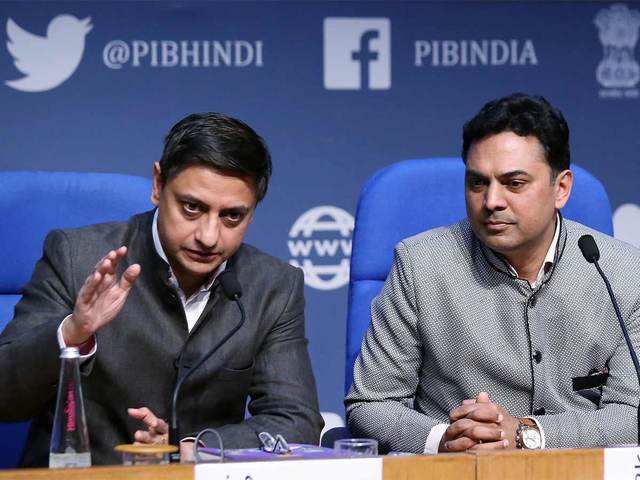Fiscal deficit target may be relaxed to arrest declining growth: Economic Survey
The Medium Term Fiscal Policy (MTFP) statement presented with the Budget 2019-20, pegged the fiscal deficit target for 2019-20 at 3.3 per cent of gross domestic product (GDP), which was further expected to follow a gradual path of reduction and attain the targeted level of 3 per cent of GDP in 2020-21, and continue at the same level in 2021-22.
by PTI
New Delhi: The Economic Survey on Friday made a case for relaxing the fiscal deficit target of 3.3 per cent of GDP in view of the need to arrest declining growth, estimated to touch an 11-year low of 5 per cent in the current fiscal.
The Medium Term Fiscal Policy (MTFP) statement presented with the Budget 2019-20, pegged the fiscal deficit target for 2019-20 at 3.3 per cent of gross domestic product (GDP), which was further expected to follow a gradual path of reduction and attain the targeted level of 3 per cent of GDP in 2020-21, and continue at the same level in 2021-22.
The year 2019-20 has been challenging for the Indian economy owing to the decelerating growth rate experienced in the first half of the year, said the survey prepared by a team led by Chief Economic Adviser K V Subramanian.
"While, on one hand the outlook for global growth persists to be weak, with escalated trade tensions adding to the risk; on the other hand, the pace of recovery of growth will have implications for revenue collections," it said.
In a press conference after the Economic Survey for 2019-20 was tabled in Parliament , Subramanian said, "We have actually acknowledged that if you look at overall fiscal deficit over the nine-month period then it is similar to what it was in last year. But given the revenue situation there may be possibly some slippage in the fiscal deficit."
The government's fiscal deficit touched 132.4 per cent of the full-year target at December-end mainly due to slower pace of revenue collections, official data showed on Friday.
In order to boost the sluggish demand and consumer sentiments, counter-cyclical fiscal policy may have to be adopted to create additional fiscal headroom, the Economic Survey said.
During the first eight months of 2019-20, the indirect tax collections have been muted.
Therefore, revenue buoyancy of goods and services tax (GST) would be key to the resource position of both central and state governments.
On the expenditure side, rationalisation of subsidies especially food subsidy could be an important tool for expanding the headroom for fiscal manoeuvre.
The survey noted that the geopolitical situation unfolding in West Asia is likely to have implications on oil prices, and thereby on the petroleum subsidy, apart from having implications for current account balance.
"Going forward, considering the urgent priority of the government to revive growth in the economy, the fiscal deficit target may have to be relaxed for the current year," it said.
It said structural reforms undertaken in taxation during the current financial year include change in corporate tax rate and measures to ease the implementation of GST.
The states have continued on the path of fiscal consolidation and contained the fiscal deficit within the targets set out by the Fiscal Responsibility and Budget Management (FRBM) Act, it added.